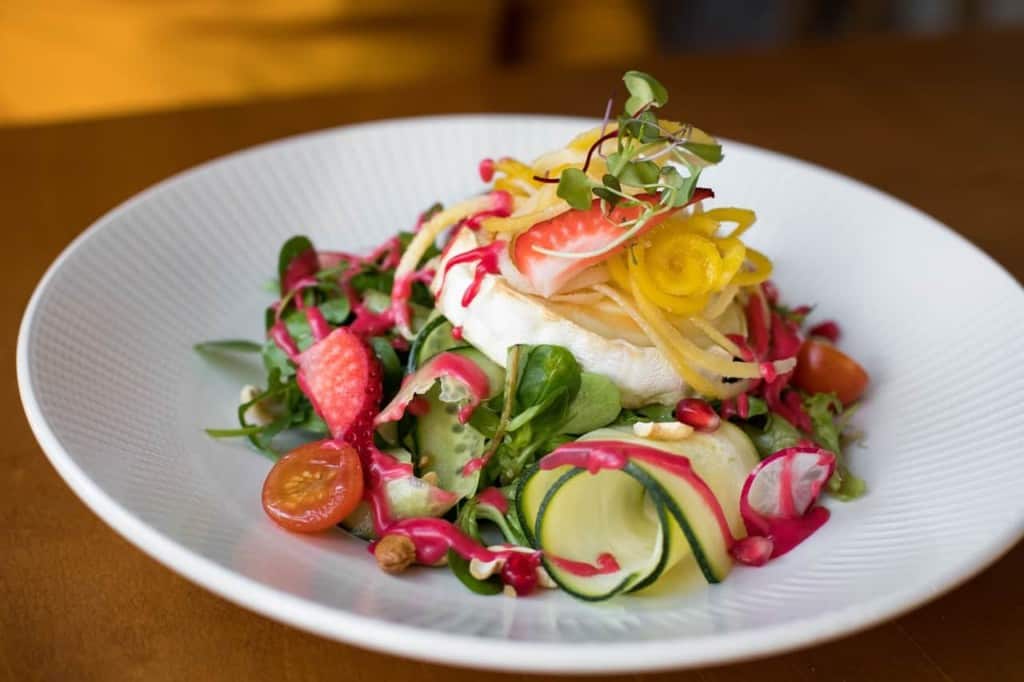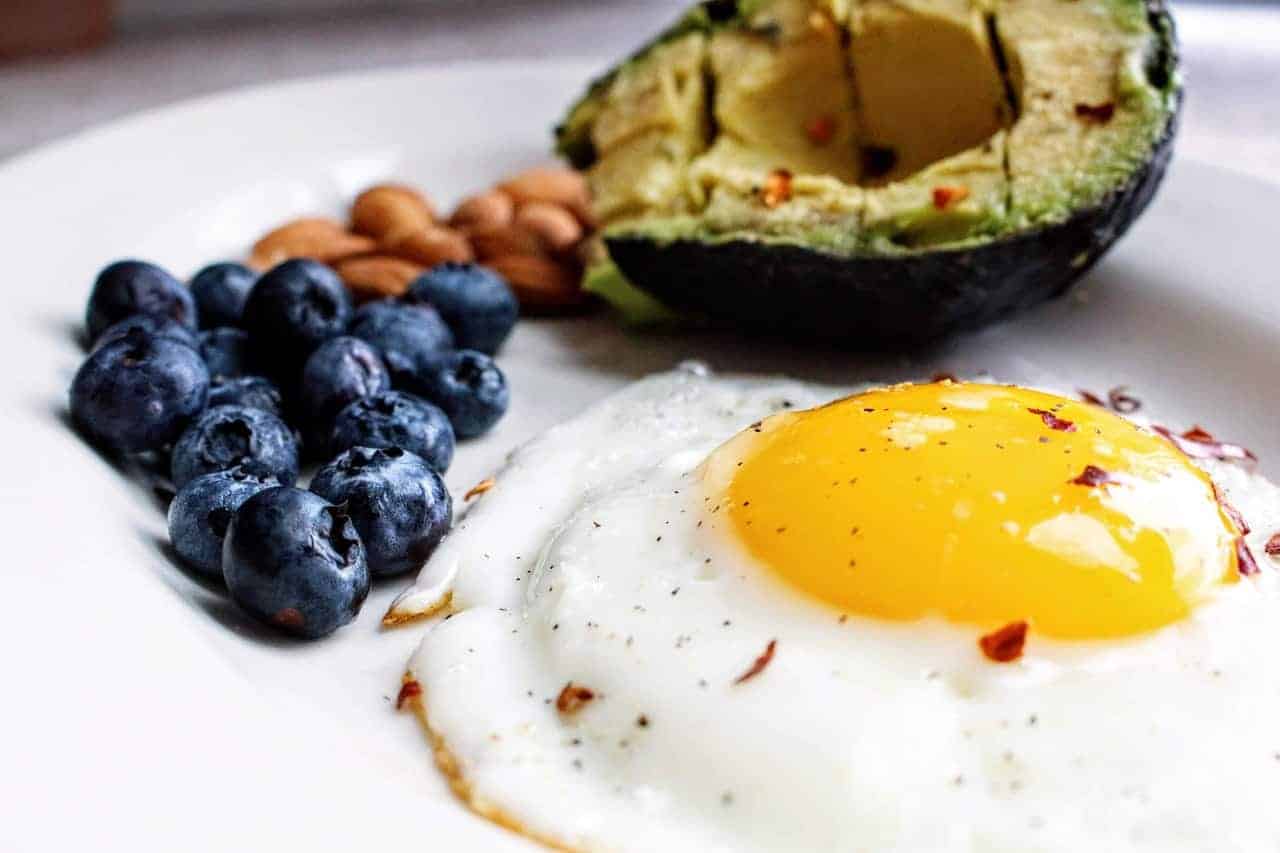Sorting through all of the opinions and advice about dieting on social media and the web can be time-consuming and frustrating. After all, which of these contradictory claims should you believe? While many of the advertised diets are fads, only a few have medical science behind them. The keto, or ketogenic, diet is one of those diets developed by medical researchers.
And you will start every day with a healthy keto breakfast.
According to Healthline, the ketogenic diet comes with a variety of scientifically proven benefits: increased HDL or good cholesterol, decreased LDL or bad cholesterol, decreased appetite, increased weight and fat loss (particularly from the abdomen), lower triglycerides, reduced blood sugar, reduced insulin, lower blood pressure, improved acne, decreased symptoms of metabolic syndrome, and decreased symptoms of brain disorders such as epilepsy.
Most importantly, as a diet, the keto diet works well as a three to six month, short-term, weight-loss plan.
How Does the Keto Diet Work?
Eating less than 50 grams of carbohydrates in a day causes your body to have less quickly-available fuel. After three to four days of having less of this type of fuel, your body will begin to break down protein and fat to supply its energy instead. This state, known as ketosis, is what causes you to lose weight.
Carbohydrates
The science behind the ketogenic diet tells you to limit your intake of carbohydrates and instead get most of your calories from protein and fat sources. The diet requires that you eat less than 50 grams of carbohydrates per day and avoid carbohydrates such as sugar, soda, and white bread that are high on the glycemic index. Instead, you should choose complex carbohydrates.
Examples include the following:
- brown rice
- quinoa
- oatmeal
- yams
- beans
- lentils
- legumes
- nuts, and
- seeds.
Low starch vegetables such as carrots, spinach, broccoli, onions, artichokes, tomatoes, and cucumbers are also low on the glycemic index.
Protein
Protein is an essential part of any diet, not just the keto diet. Our body needs protein, which is made up of smaller units called amino acids, to function. We need the essential amino acids in protein so that our bodies can grow and repair muscle tissue. We also need protein so that we can keep our hair, nails, bones, skin, and internal organs healthy. Finally, protein helps us to create the hormones and enzymes necessary to our daily function.
The following are good protein sources:
- shrimp
- crab
- salmon
- sardines
- mackerel
- cheese
- grass-fed meat
- poultry
- eggs
- plain Greek yogurt, and
- cottage cheese.
Fats
Not all fats are created equal. Despite the fact that the keto diet encourages eating more fat than many other diets, that doesn’t mean that any fat is good fat. Avoid processed, polyunsaturated fats such as canola, soybean, and peanut oil. You should also avoid processed trans fats which are found in processed foods, fast foods, and margarine.
There are many sources of good fats that you can eat, however.
Examples include the following:
- avocadoes
- coconut oil
- butter
- ghee
- cream
- olive oil
- olives
- nuts / seeds
- nut-butters, and
- fish oil.
Keto Breakfast Recipes
There are many simple keto breakfast dishes that you can grab on the go without any preparation. A handful of roasted nuts, ham and cheese roll-ups, or hard-boiled eggs will all serve as a quick keto breakfast. However, if you are interested in varying your morning foods or need to satisfy specific taste urges, then here are five essential keto breakfast recipes to make, modify, and enjoy any time of the day.
1. The Keto Smoothie
Keto Smoothies are the perfect on-the-go keto breakfast food: easy to make, portable, and delicious. There are endless combinations of the ingredients that will satisfy your need for a variety and your cravings for good, tasty food. You will need a good quality blender.
Ingredients:
½ cup silken tofu
1 cup berries
1 cup greens
½ to 1 cup low fat, unsweetened coconut milk
½ cup ice (if using fresh fruits and veggies)
The Smooth
Tofu, a good source of protein with low net carbohydrates will put the “smooth” in your smoothie. Any of the following keto-friendly ingredients will also help your achieve this texture: avocado, ground oats, plain Greek yogurt, cottage cheese, cream cheese, nuts, or nut butters. Avoid nut butters or yogurts with added sugars.
The Sweet
Berries are a good addition to a Keto Smoothie because of their low carbs. Fresh strawberries, raspberries, acai berries, and blackberries will all add sweetness and texture. Blueberries are often your best bet if you are craving something really sweet.
The Healthy
There are countless good greens that you can add to increase the nutrients in your smoothie: spinach, kale, parsley, cabbage, cucumber, ginger, mint, cilantro, or celery.
The Liquid
You can use any form of unsweetened nut milk, whole cow’s milk, oat milk, or water. You will want to add more liquid or ice depending on how thick or thin you like your smoothies.
Once you have blended your smoothie to your desired consistency, don’t forgot to top it off with cinnamon, nutmeg, or maybe even a little turmeric.
2. Inside-Out Keto Breakfast Sandwich
Egg, meat, and cheese sandwiches are a breakfast staple, and these three ingredients are all extremely keto-friendly. However, the traditional breakfast sandwiches run afoul of the rules of keto dieting due to the bagel, English muffin, or biscuit. Keto chefs have a simple solution; do away with the bread.
Ingredients:
egg – scrambled or over easy
sliced cheese
2 cooked sausage patties
veggies
In order to assemble your keto breakfast sandwich, simply use your sausage patties as bread and your egg and cheese as the sandwich filling. Slices tomatoes, spinach, avocado, or any other veggies of choice make a nice addition to this tasty sandwich.
3. Keto Hash Skillet
Skillets are another fan favorite. They combine the appeal of diner food with a one dish simplicity. The Keto Hash Skillet offers endless variety, depending on which ingredients you put together.
Ingredients:
eggs – scrambled, poached, over easy, or sunny-side-up
veggies – onions, peppers, spinach, tomatoes, mushrooms, any other low starch veggies
meat – bacon, steak strips, ham, corned beef, or sausage
olive oil
shredded cheese
In a cast-iron skillet or another solid frying pan, cook your meat. Remove meat from pan and cover with foil to keep warm. If you are using bacon or sausage, the olive oil is not necessary; simply cook your vegetables in the bacon or sausage fat. Heat the olive oil over medium to medium-high heat. Stir in your vegetables and allow to cook until slightly tender. Add meat to vegetables and mix well. Meanwhile, in a separate smaller pan, cook eggs in the desired manner. Place meat and vegetable mixture on a plate and cover with eggs. Sprinkle with shredded cheddar cheese.
4. Keto Cakes
Pancakes, a weekend breakfast standard, may seem off-limits on a ketogenic diet since a typical serving of pancakes contains 37 grams of carbohydrate and a serving of maple syrup contains 13 grams. That one meal puts us at our carbohydrate limit for the day. However, it is possible to make delicious Keto Cakes with only 12 grams of carbohydrate.
Ingredients:
1 cup almond flour
¼ cup coconut flour
2-3 Tbsp erythritol or another sweetener (see substitute sweetener chart for proportions)
1 tsp gluten-free baking powder
5 eggs
1/3 cup unsweetened nut milk
¼ cup coconut oil
1 ½ tsp vanilla extract
¼ tsp salt
dark chocolate chips or blueberries
Combine all of the ingredients together in a bowl until blended. Heat a griddle to 300 degrees. Pour ¼ cup of batter onto the griddle for each pancake. Cook one to two minutes per side until cake is golden brown. Remove from griddle and top with your favorite toppings: butter, sugar-free syrup, berries, walnuts, nut butters, or breakfast meats.
5. Keto Crunch
Last, but definitely not least, on your list of keto breakfast recipes should be a good granola. Use this basic recipe, combining different nuts and spices for a variety of flavors.
Ingredients:
nuts: almonds, pecans, walnuts, and/or pine nuts
seeds: pumpkin seeds, sunflower seeds, and/or sesame seeds
flaked coconut
monk fruit sweetener or other keto-friendly sweetener
spices: cinnamon, cloves, nutmeg, and/or pumpkin pie spice
salt
melted coconut oil
egg white
vanilla extract
Preheat the oven to 300 degrees.
Chop nuts. Then mix nuts, seeds, coconut, sweetener, cinnamon, and salt together in a large bowl. In a small bowl combine the melted coconut oil, egg white, and vanilla. Pour the oil mixture over the nut mixture and combine until the nuts and seeds are thoroughly coated.
Spread the mixture in a single layer onto a baking sheet covered in parchment paper. Bake for 25 to 30 minutes, turning the pan in the oven halfway through. Do not stir the granola.
Final Thoughts
Just as there is an endless number of diet options promoted through social media and the web, everyone has their opinions on the necessity of breakfast. Some tout it as the most important meal of the day; others swear by one-meal-a-day intermittent fasting. Some claim that breakfast is the first of the three essential square meals in a day, while others swear that they cannot eat in the morning. Regardless of which side of the breakfast debate you fall, there are many keto breakfast recipes that you can enjoy no matter what time of day you eat them.


















